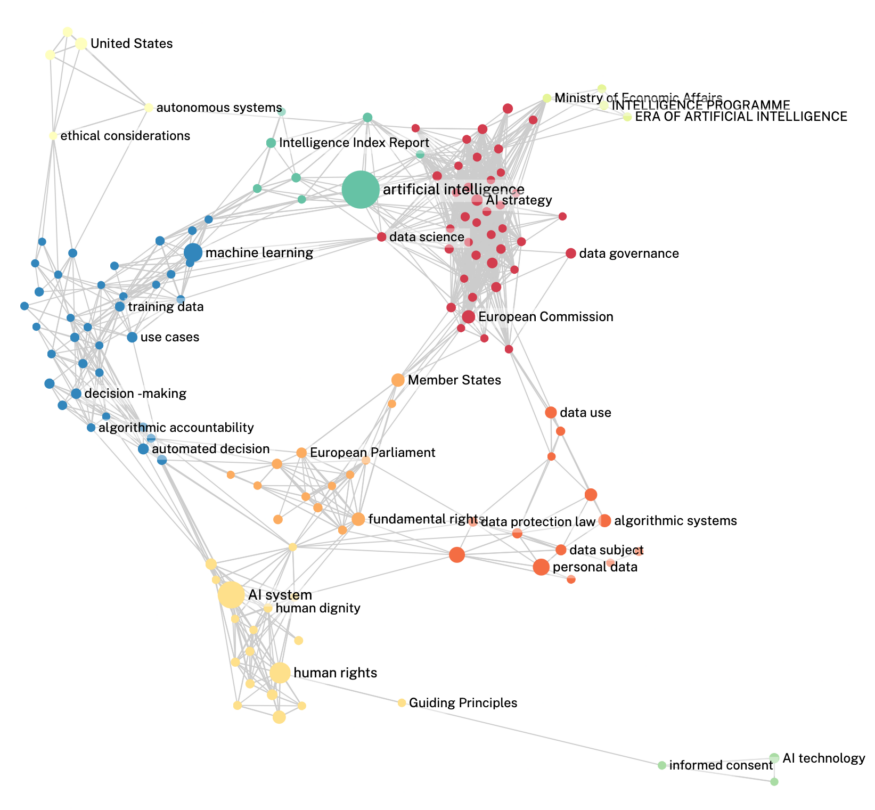Culpa qui officia deserunt mollit anim id est laborum. Sed ut perspiciatis unde omnis iste natus error sit voluptartem accusantium doloremque laudantium, totam rem aperiam, eaque ipsa quae ab illo inventore veritatis et quasi ropeior architecto beatae vitae dicta sunt.
This includes researchers, both in exact and social sciences, regulatory institutions, companies developing or using AI systems, but also news outlets (specialised or not), civil society regroupments criticizing their implementations, and so on. It is a construct with social and technical dimensions, that we aim to study as is.
The recent AI Act emphasizes the need « to clarify the roles of actors who can contribute to the conceptions of AI systems ». The AI Act advocates for the co-regulation of AI based on impact assessments; appreciating the impact of AI systems requires a fine-grained understanding of the actors and their respective positions.
In this context, we are interested in identifying the actors, their tenets and how they evolve in time, to shape the social world of artificial intelligence.

Our research and teaching gravitate around the most pressing problems facing high-risk AI use cases, regardless of the kind of technology deployed (GenAI, deep learning, symbolic AI)